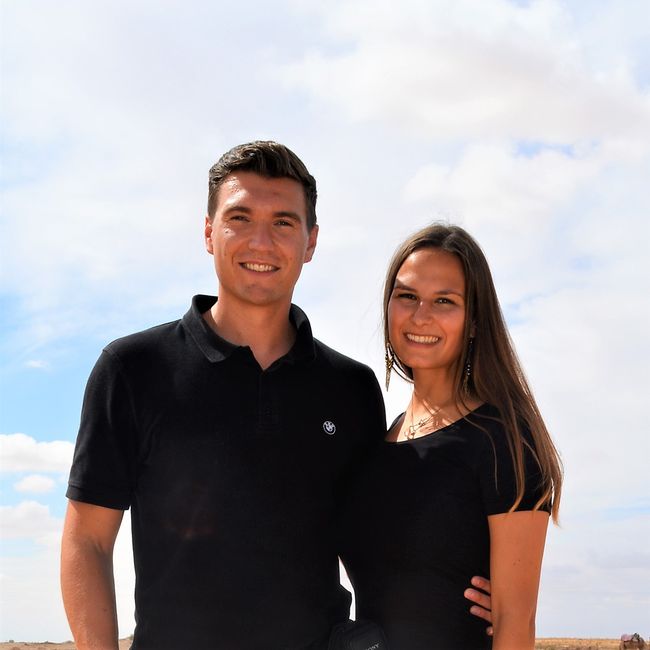
Spätzle süßsauer
vakantio.de/spaetzle_suesssauer
Siem Reap and the 'Angkor What?' - plus the conclusion about Cambodia
Ebimisami: 20.06.2019
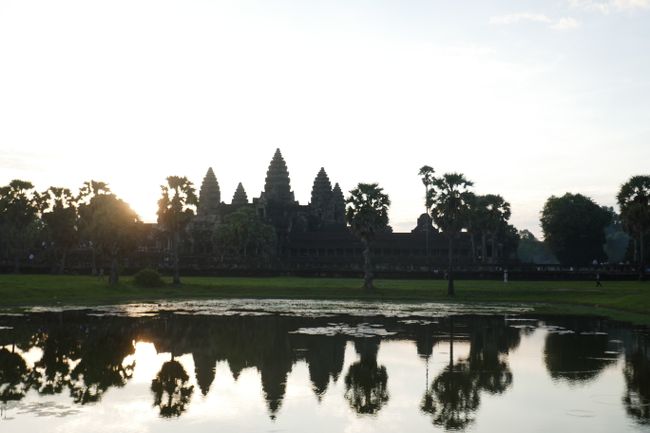
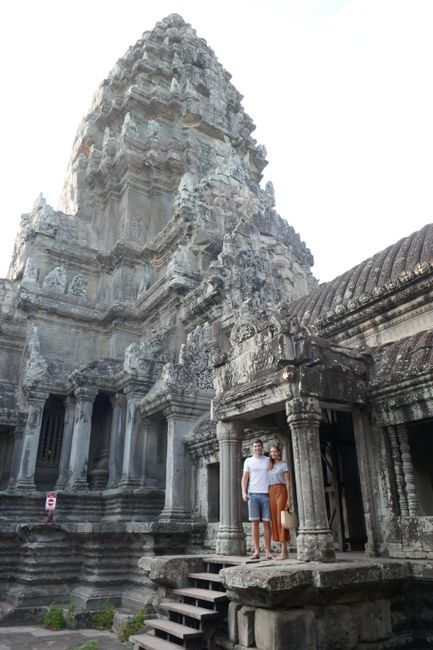
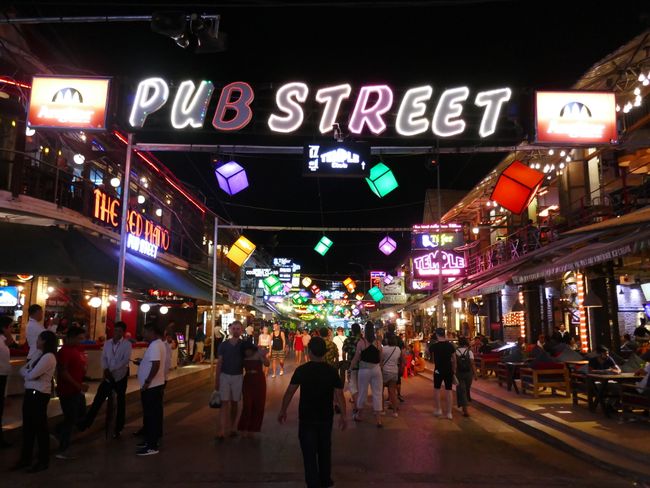
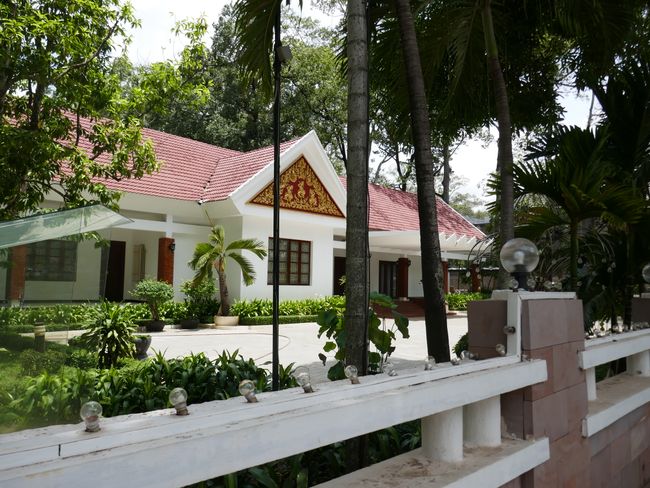
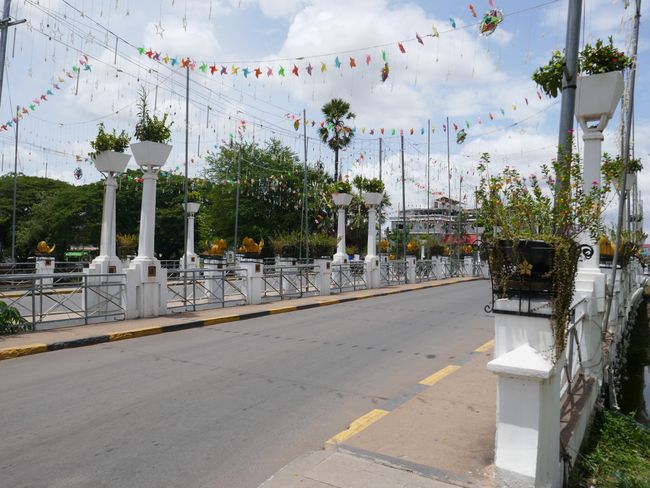
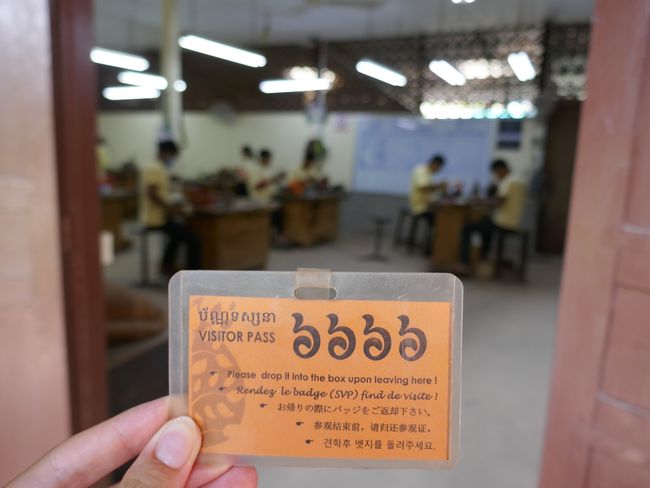
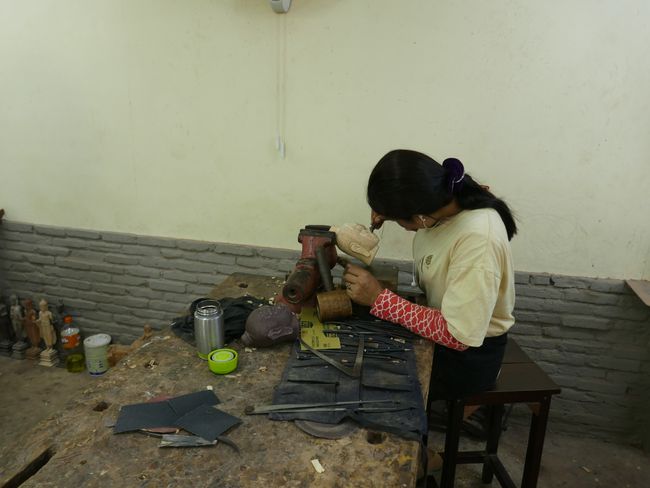
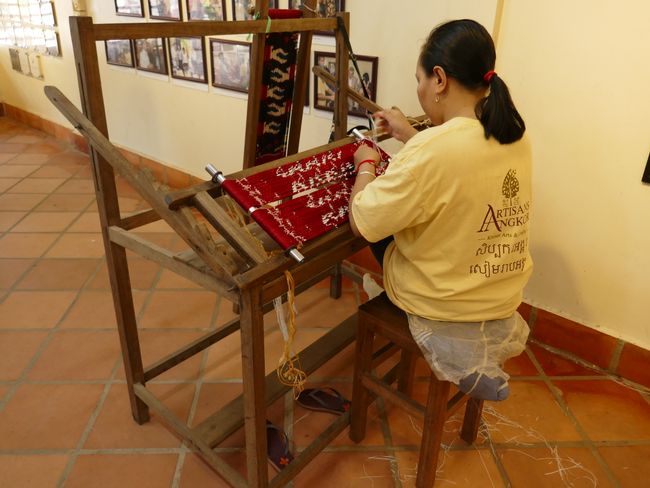
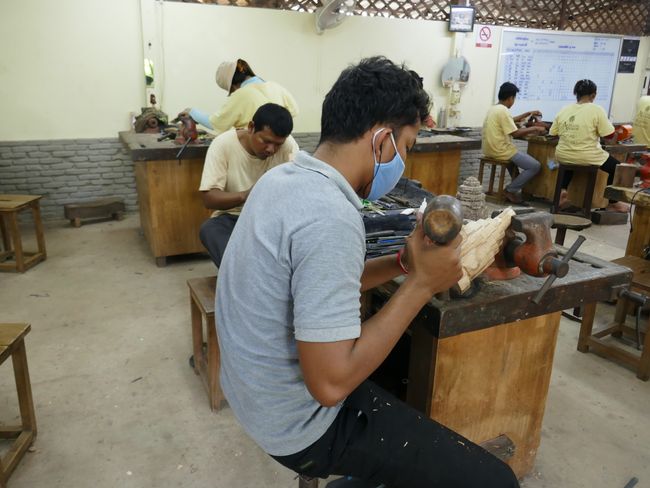
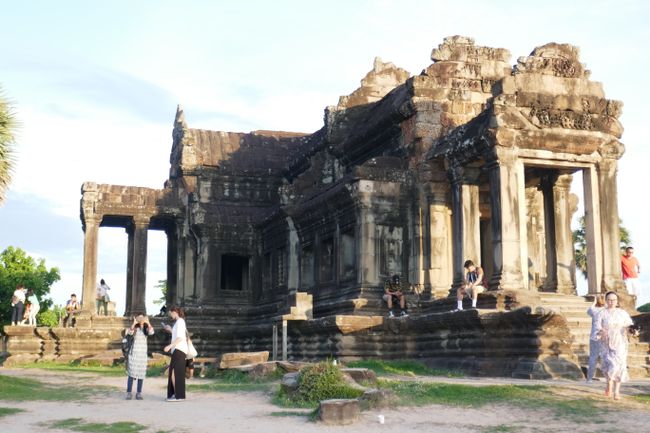
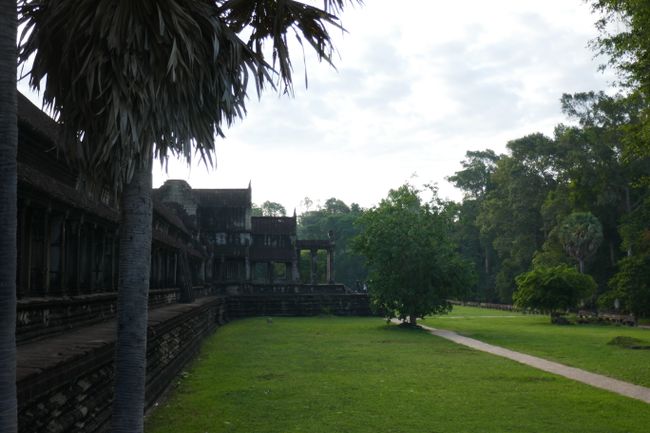
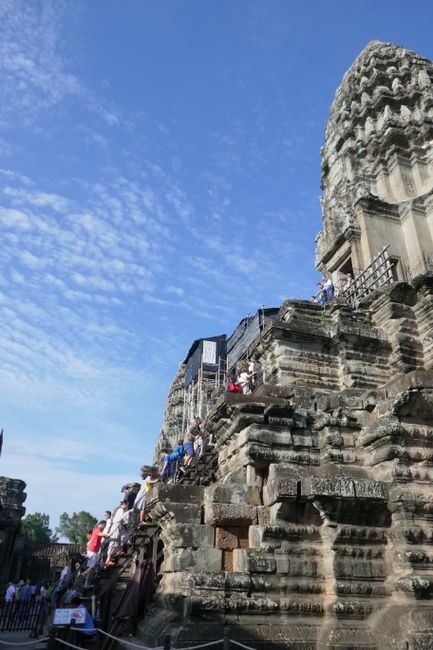
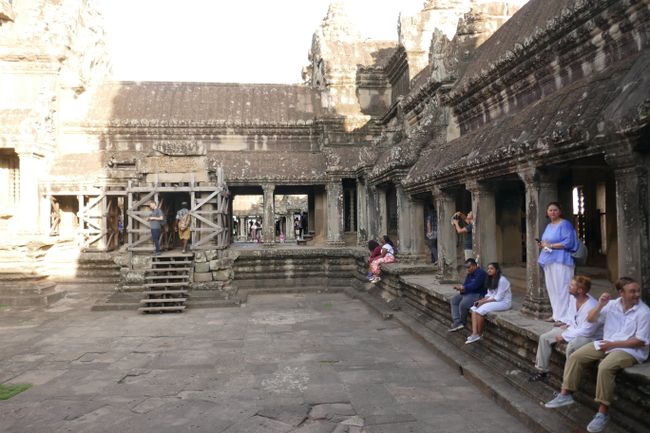
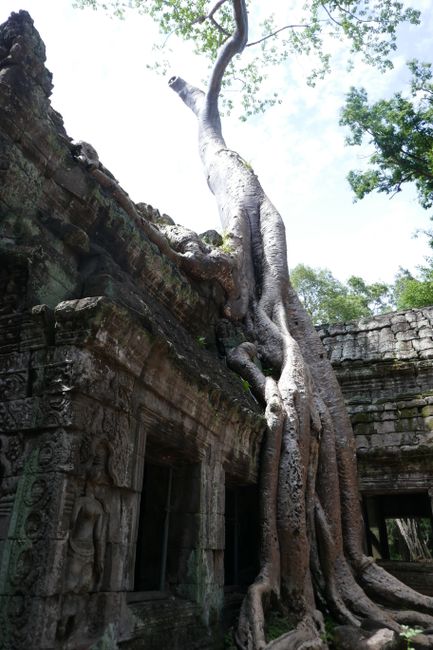
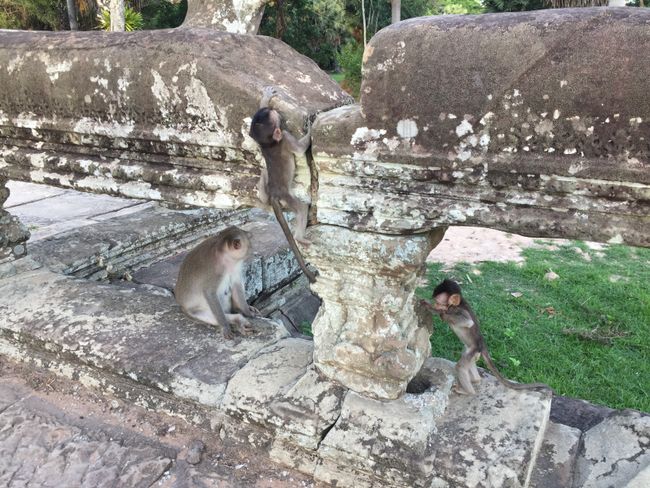
Abonnez-vous na Bulletin ya Sango
When a man or woman travels to Cambodia, the number one attraction is the Angkor Wat. Totally logical. You must not miss it. Even though the ticket prices have now reached a proud $37.
Most visitors stay in the nearest city, Siem Reap. So did we. The city is not that big, so you can easily explore it in a day. We had booked three nights, so we had enough time to visit the Angkor Wat.
On the day of arrival, we strolled aimlessly through the streets in the evening. We ended up at the "Pub-Street", where we drank every Khmer under the table until dawn (just kidding).
The Pub-Street is a street where "Western food" restaurants / pubs (that's what it's called in Asia) and Khmer food restaurants / pubs are lined up side by side. Everything glitters, sparkles and shines in colors.
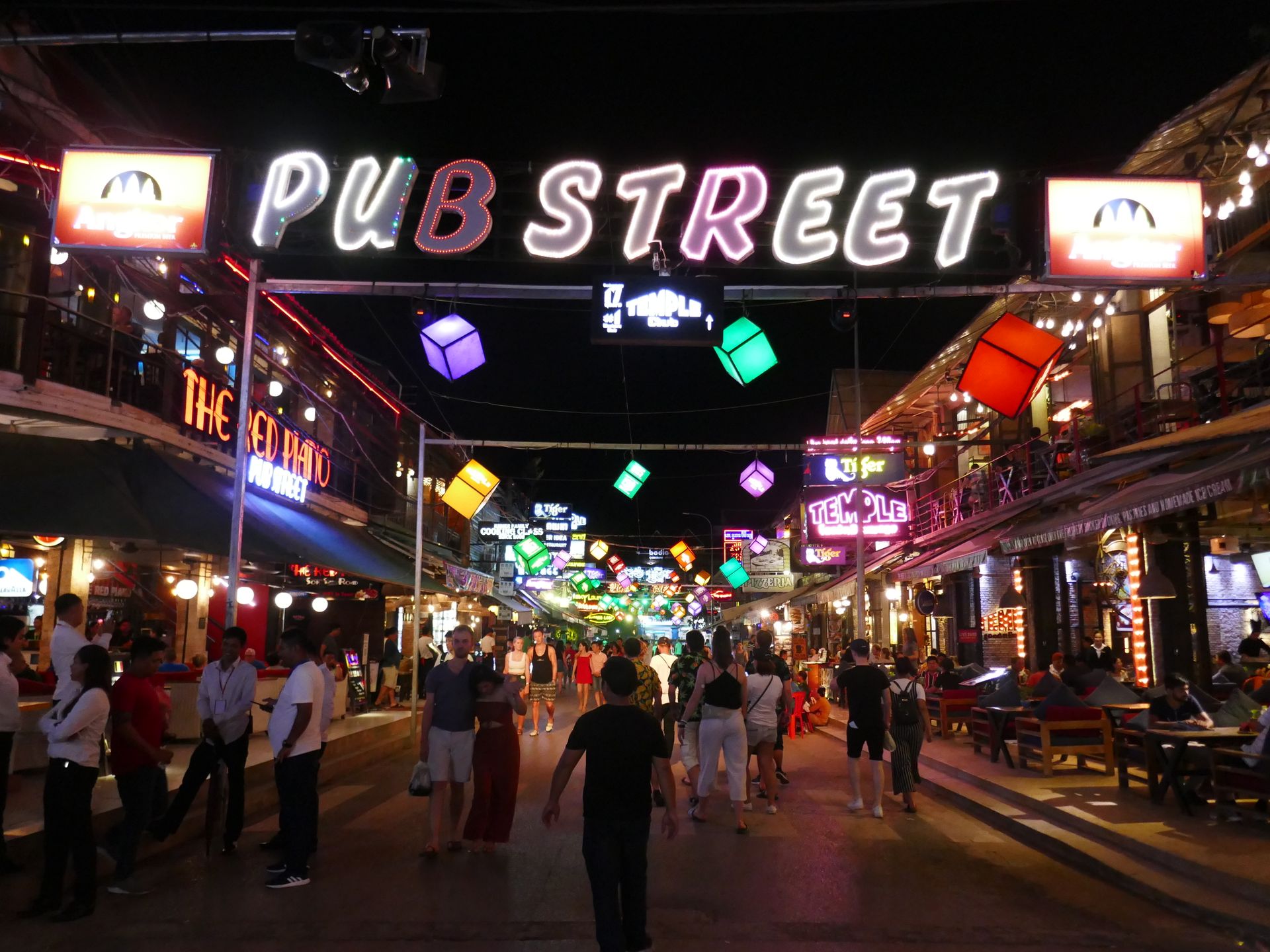
To inspect Siam Reap during the day, we set off on foot.
The Khmer King, Norodom Sihamoni, who is known to have his stately hut in Phnom Penh, also has a residence in S. R. That's where we went first. Not far from there was a decorated bridge that caught our attention.
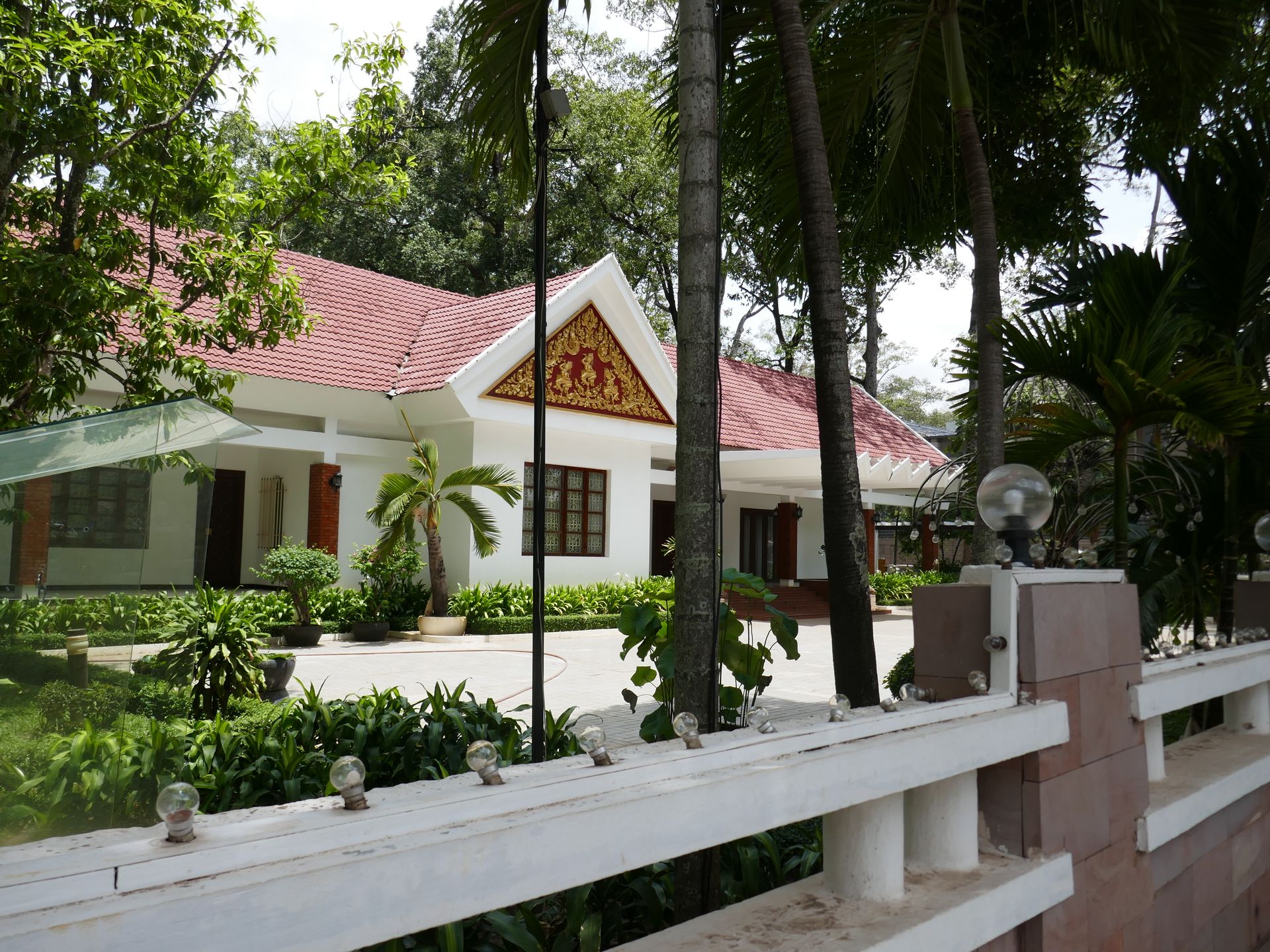

As our stomachs were gradually growling, we decided to walk to the Pub-Street. However, on the way there, Nadine suddenly felt toothache. She had been plagued by it in the past few days. But the question always remained: Go to the dentist right away or try everything else first? Nadine initially opted for the second option. After an email exchange with her overseas insurance, it turned out that there would be a deductible of €150 after the dental examination - a Swabian woman would not let that slide!
After some consideration, we were 50.01% sure: it was definitely the hotel toothbrushes. They had to be replaced immediately. And maybe a new toothpaste for damaged teeth? That's also being bought. Well, let's wait and see.
After Nadine equips herself well in the fight against toothache, she still attaches importance to eating "something familiar" that day: spaghetti with tomato sauce. Because her teeth "otherwise never suffer any damage from it".
And it turns out: the toothache should occur less and less after that day.
As we found out after researching on the internet, Siem Reap, besides Angkor Wat, is also known for the "Artisans Angkor". This is a network of craftsmen/artists who have developed from the belief to revive ancient Cambodian craftsmanship and at the same time improve the lives of thousands of people living in poor rural conditions through craftsmanship training.
From large Buddha statues, to small gilded elephants and jewelry, they create really beautiful decorative and jewelry items. The artisans provide training on the one hand and accept orders (e.g. temple restorations) on the other. They have already received national and international awards.
There are a total of three workshops in and around the city. You can visit them for free and get an insight into their work. Of course, we took advantage of this offer - and were very impressed.
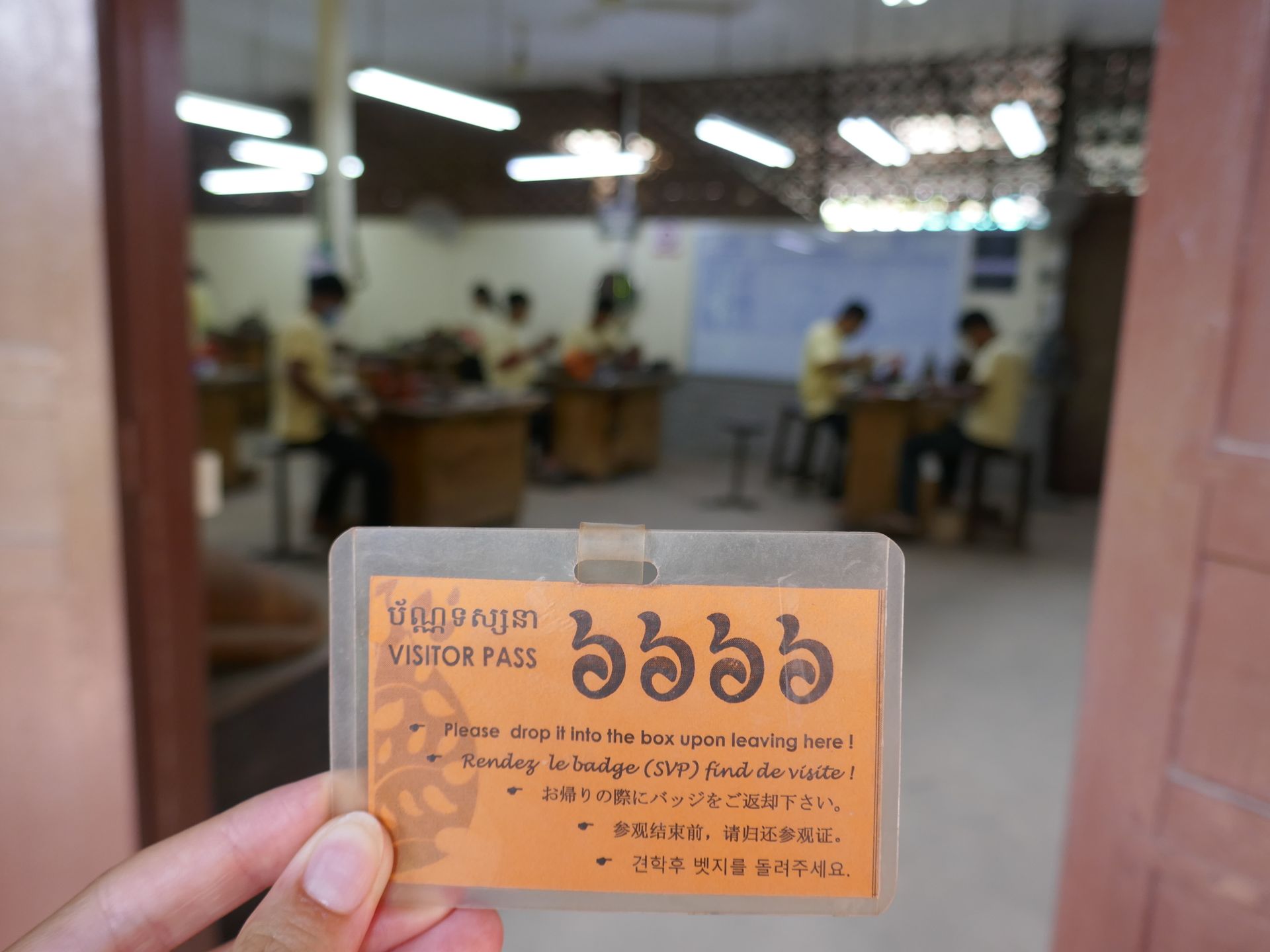

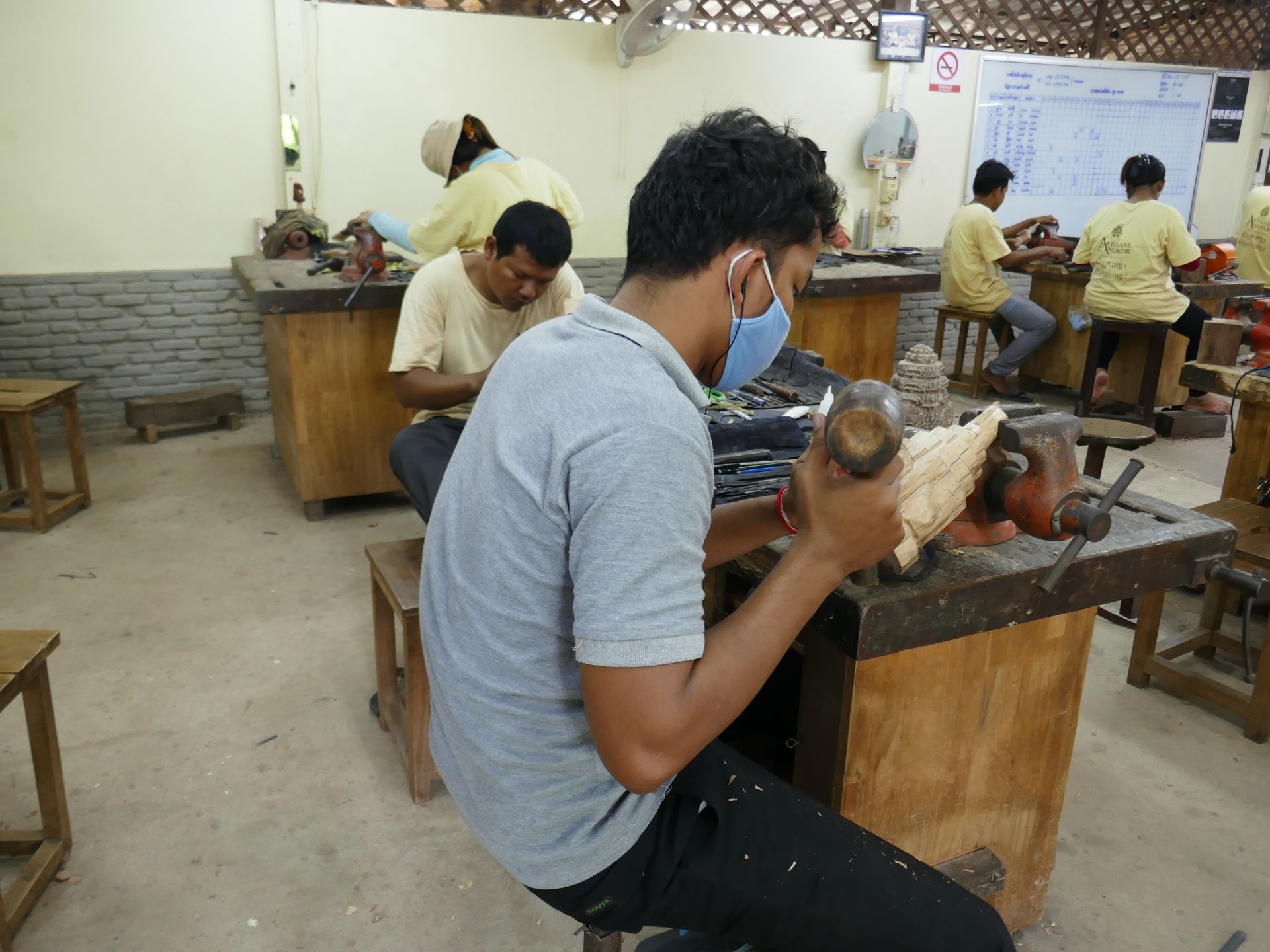
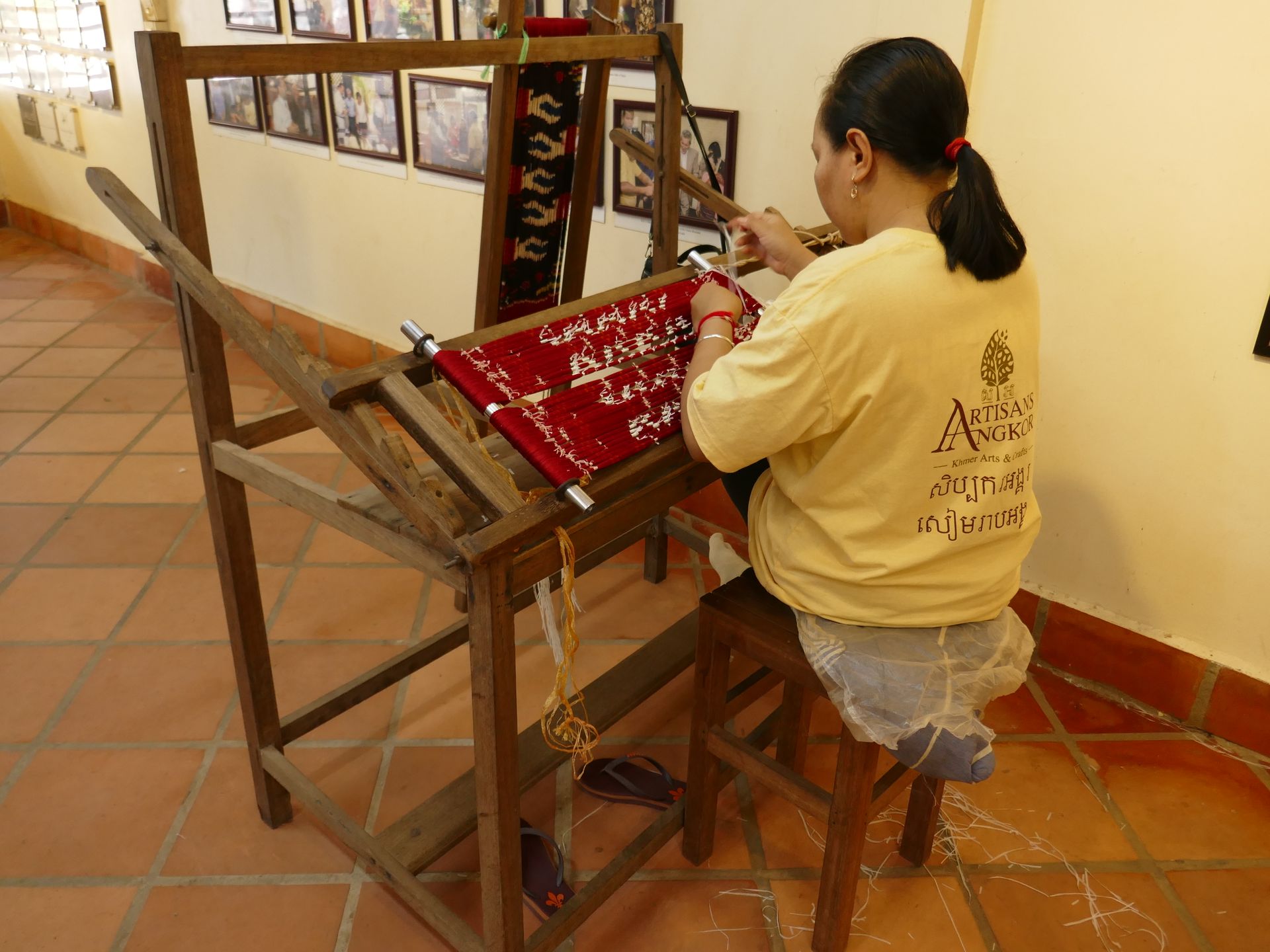
Beep beep at 4:00 a.m. An alarm sound. We had to get up.
Day three was on and thus the visit to the largest temple complex in the world, the "Angkor What?" Exactly, "what's the big deal about ruins?" - that was one of the questions we wanted to answer on this day.
Many - so many - tourists choose to be brought to Cambodia's most popular attraction by tuk-tuk. This may be the most cost-effective option. But, considering the fact that we wanted to find out more about the Angkor temples and their history, we decided on a guided tour in English. Or did we just want an air-conditioned bus because of the unbearable heat? - You will never know.
When booking, we learned that there is not only Angkor Wat, but also a few other important temple complexes in the area. In addition, you can choose between a half-day and a full-day tour, with the latter allowing you to see the sunrise and sunset as well as a few more temples. We opted for the "the early bird catches the worm" alternative. A beautiful sunrise and a few less temples sounded promising.
Apparently, quite a few others thought the same thing: at the ticket office of Angkor Wat, we experienced the largest crowd of people we had ever seen at 5 a.m. somewhere in the world. Fortunately, the area was huge and the people spread out.
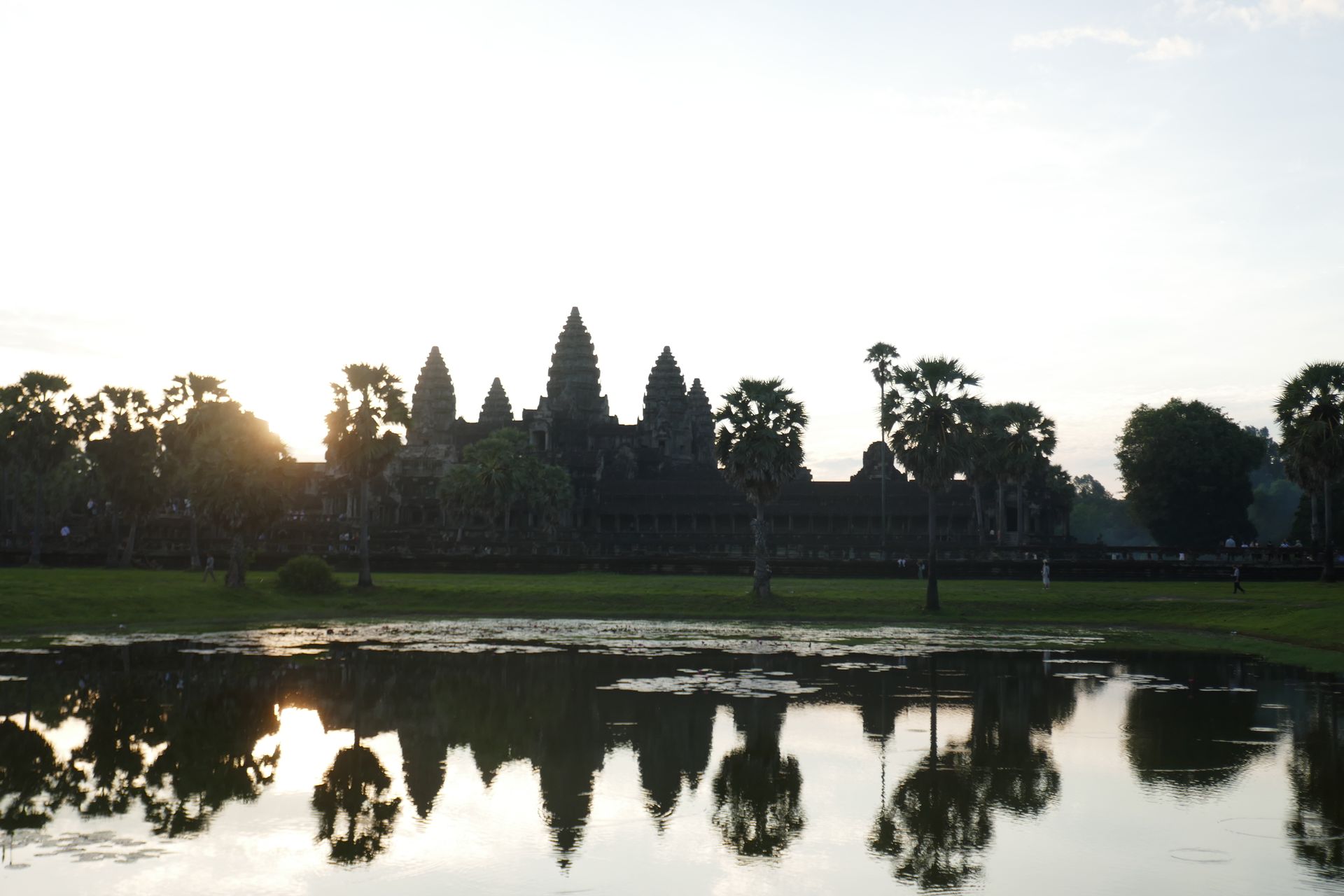
The sun rises next to the Angkor Wat temple
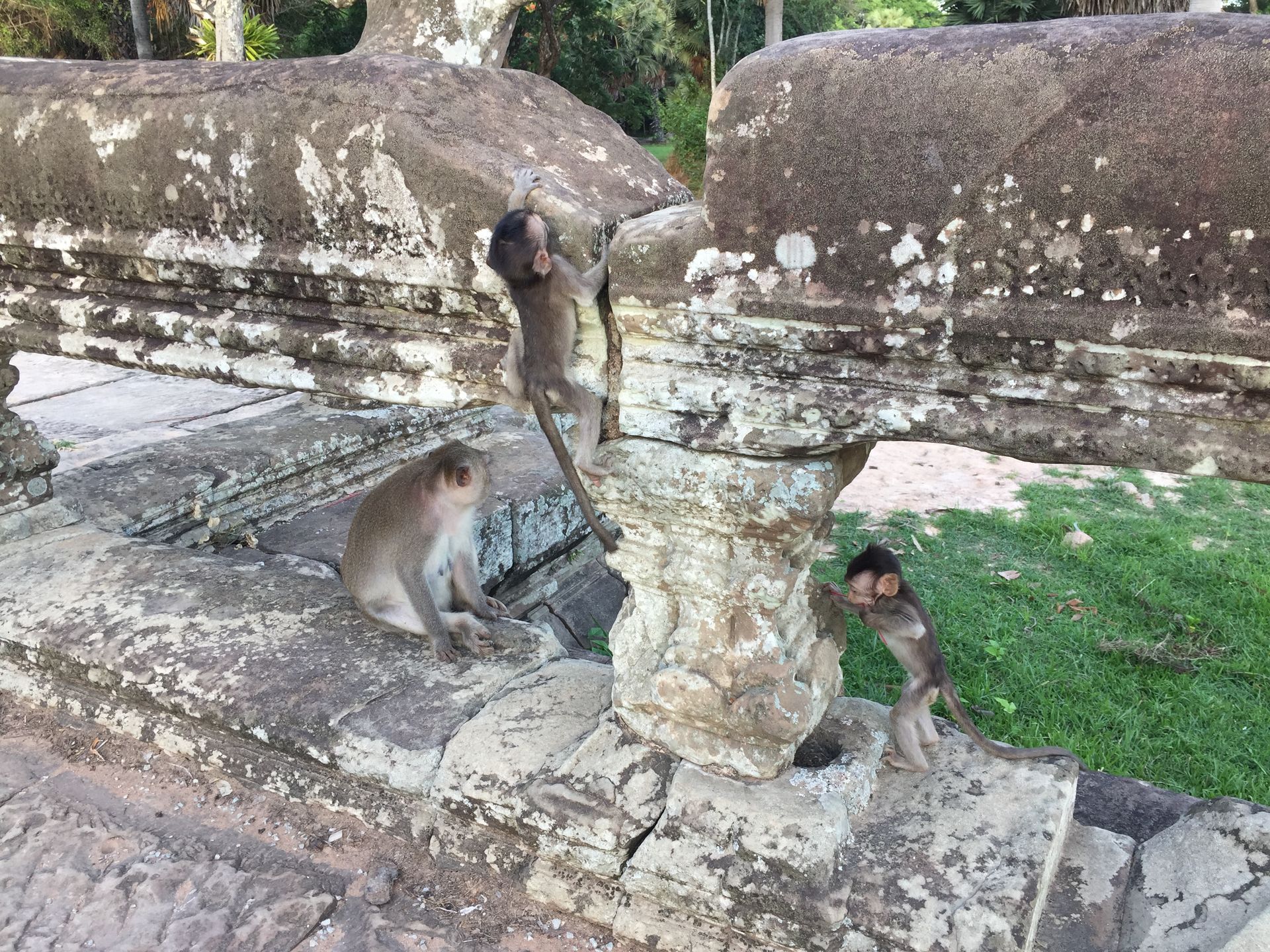
We had asked ourselves 'Angkor What?' at the beginning of our day trip, and of course, our guide had an answer to our questions: Angkor Wat is the most popular temple in the Angkor Archaeological Park. It is nearly 900 years old and covers an area of 820,000 square meters.
Here are a few historical details: The temple complex was built at a time when the Angkor Empire was at its peak and exerted significant power over large parts of Southeast Asia. The Khmer people laid the foundation for this in the 10th century by using artificial irrigation techniques through canals in agriculture for the first time. The increase in agricultural productivity brought great wealth to Angkor. This enabled the financing and construction of magnificent temple complexes.
In the 12th century, the planning and construction of Angkor Wat took place. Initially, it was built as a Hindu temple, but in the 13th century, it evolved into a Buddhist site.

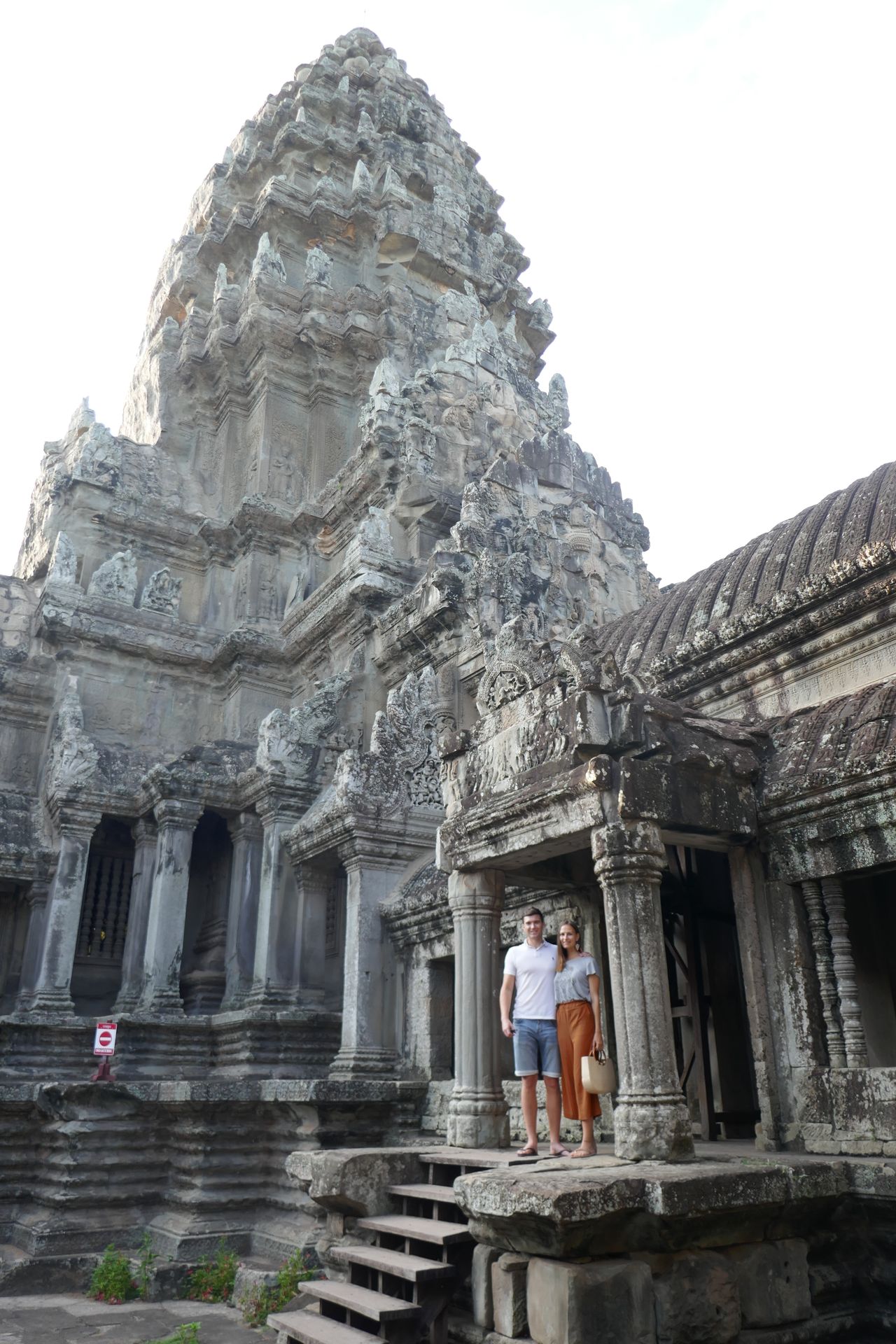
There is a dress code for the central temple. Those who are too revealingly dressed are not allowed to enter.
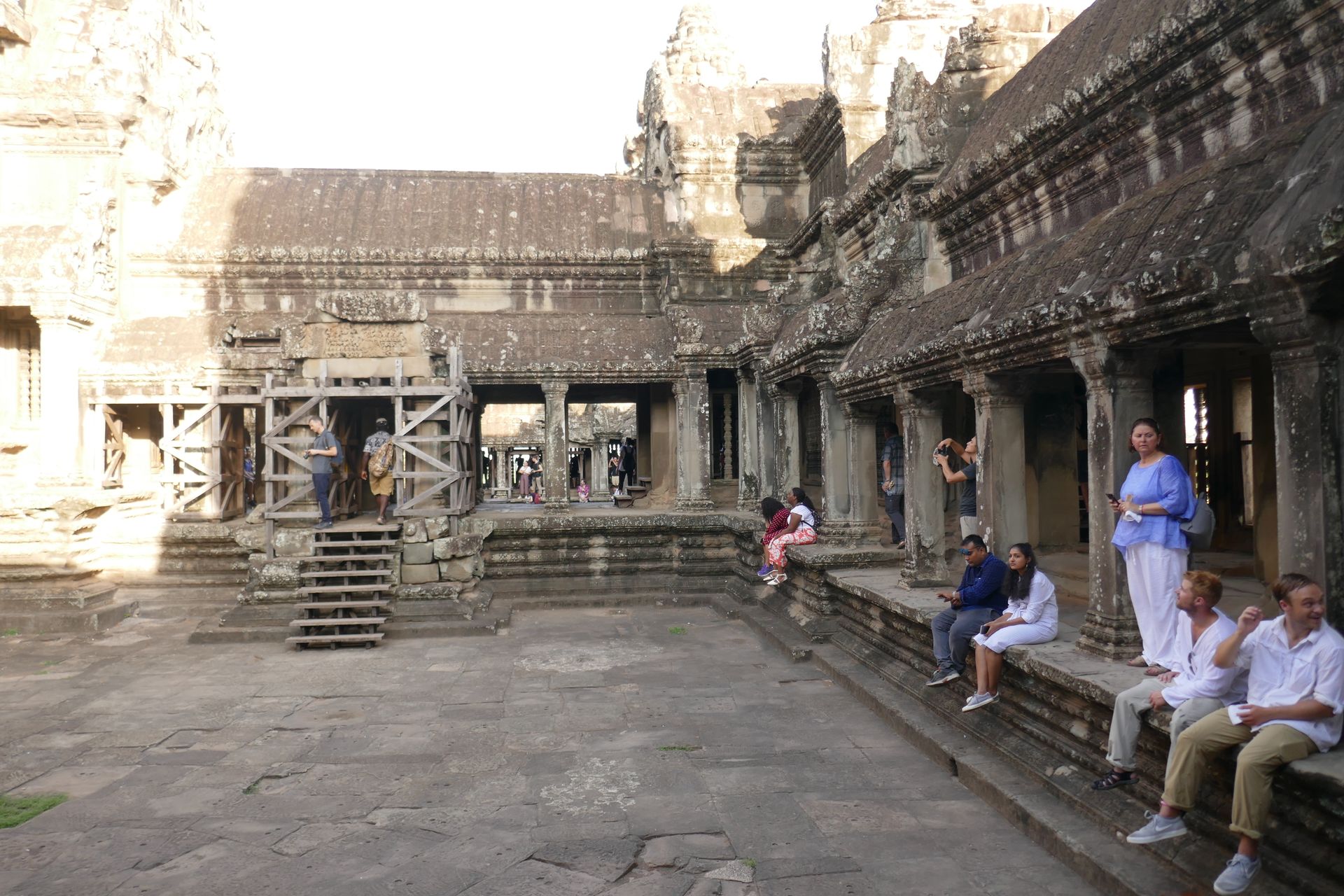
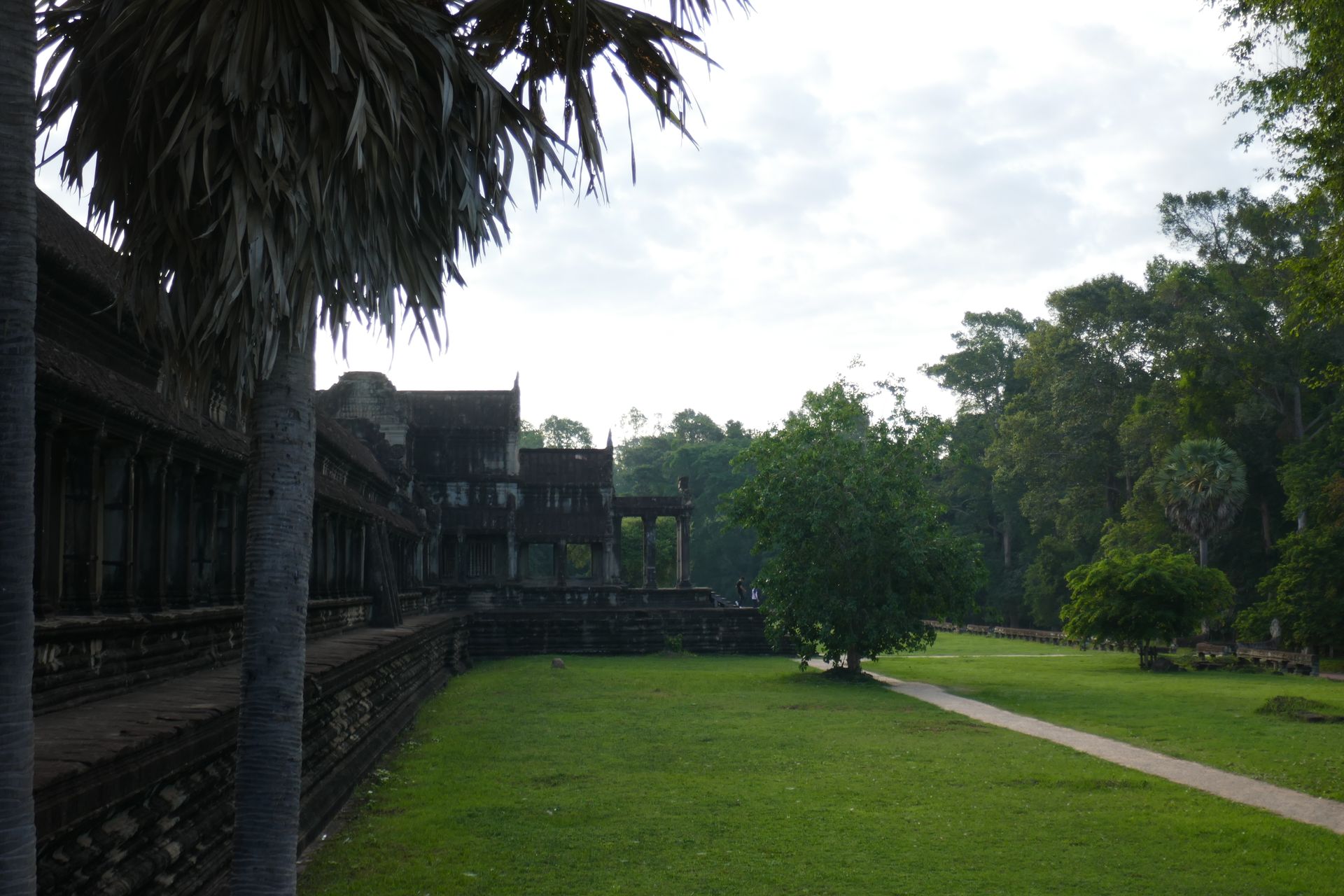
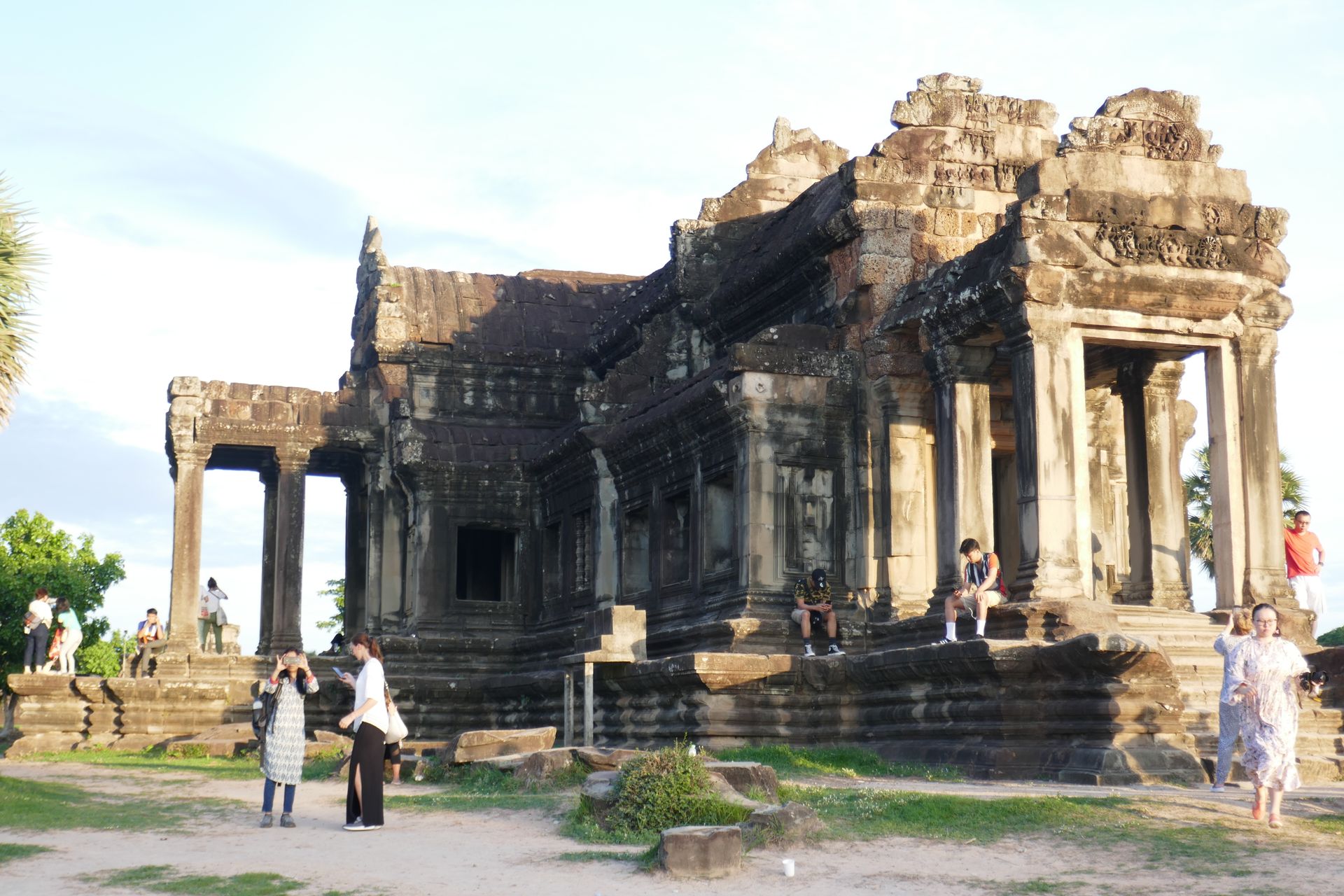
After that, there were still 3 more stops, because the former Angkor Empire has more, worth seeing buildings/ruins: The 'South Gate', the Bayon Temple, and the Taphrum Temple. The latter is mainly known for the movie 'Tomb Raider' and its main character Lara Croft. But even apart from that, it's worth a visit.
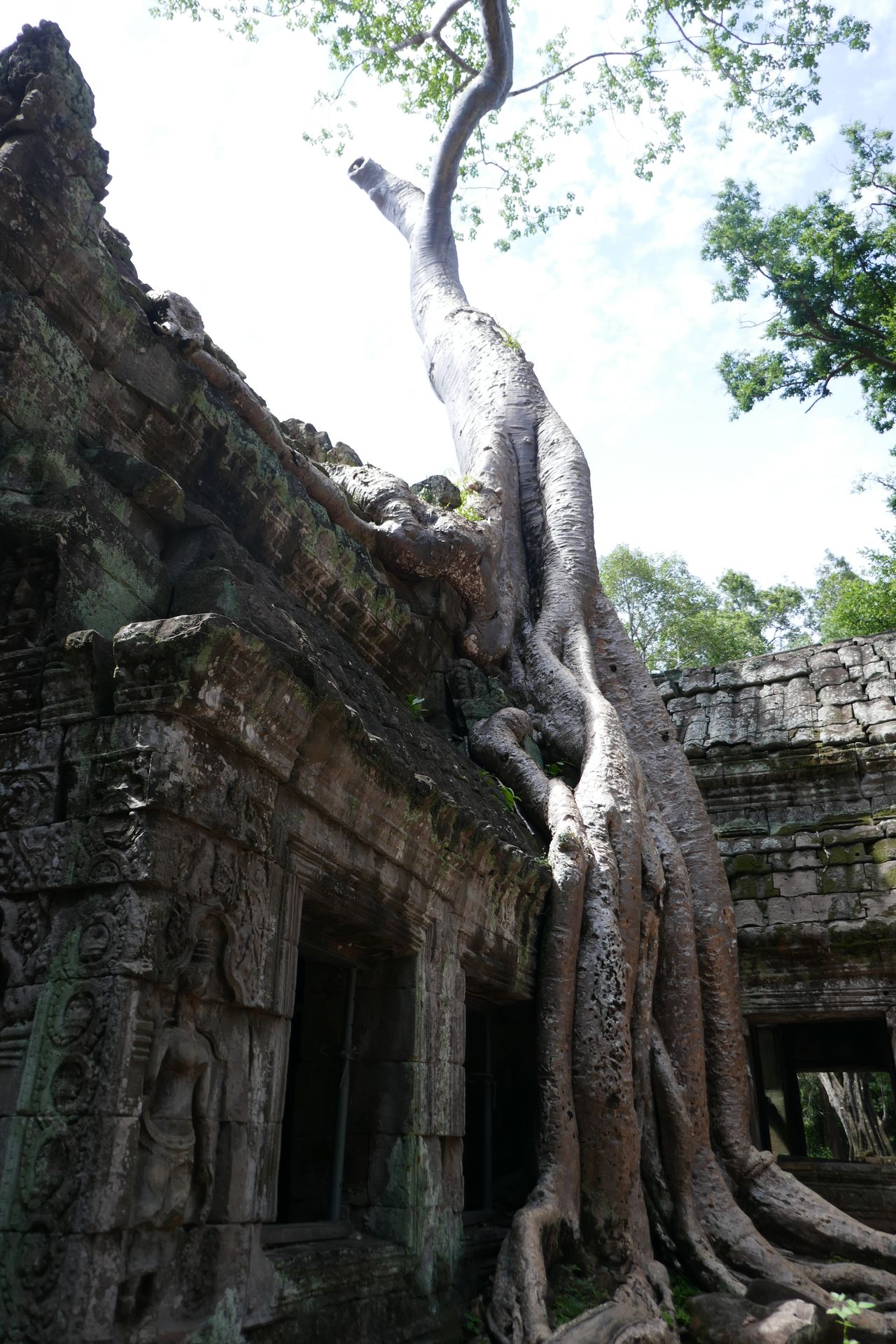
At around 12 o'clock, we were already back at the hotel. The remaining time could be used perfectly for a much-needed shopping tour because Max needed T-shirts - after finally realizing that his thick polo shirts were not really usable for the local climate. We not only enjoy shopping in supermarkets but also at markets. Because, as in all of Southeast Asia, you can negotiate like crazy. However, it is also important to us that not only we, but also the sellers, conclude a deal with a smile in the end. Often, Max has to use all his charm to make a saleswoman finally produce a smile after long negotiations.
The next day, we took the bus to Pakse/Laos. Everything that needs to be said about this journey has been extensively described in our next blog. But let's just say: It turned out to be an adventure in retrospect, but at that time it was a tough experience.
Conclusion Cambodia
Right now, we are sitting on the bus heading towards Laos. And we both agree: In some ways, we miss civilization a lot. Of course, we didn't expect too much from Cambodia, but we are still happy about more organized and civilized conditions. However, we didn't really encounter them in this country. And there are reasons for that...
The Khmer people were not as warm and hospitable as the Vietnamese were in our experience. Rather, they constantly tried to rip off tourists.
We probably don't need to say much about the country's infrastructure. In terms of traffic, you can safely call it a disaster. In 2016, a train started running again for the first time. As far as we know, it has remained at that one route.
At this point, one wonders where all the money from the NGOs (Non-Governmental Organizations) is going. Cambodia is the most supported country on Earth in this regard. On average, there is one complete NGO for every 4600 Khmer. This incredible number proves how deeply corrupt this country must be. So, if you plan to support an NGO, please don't choose one that operates in Cambodia. Apparently, the money doesn't reach its destination. And this is after 60-70 years of support. Furthermore, this country is almost at the bottom of the Human Development Index (HDI) at 146th place.
Earlier, the locals got off for a bathroom break. In the middle of nowhere, they threw their plastic waste into nature by the roadside. One can say: The Khmer people like to buy western products (such as Coca-Cola), which came to the country through democracy, but they don't know how to deal with them and their consequences. And the biggest problem here is the resulting plastic waste. Of course, the companies cannot be exempted from their responsibility either.
Landscape-wise, Cambodia is not very diverse, although still beautiful to look at. A lot of flat land, a lot of the same vegetation, a lot of coconut palms.
Overall, we expected more from Cambodia. Of course, there are some beautiful things to see, but that doesn't really improve the overall picture. One could say that there is still a lot to be done in this country, but due to the corrupt structures, short- to medium-term improvement can hardly be expected.
Abonnez-vous na Bulletin ya Sango
Eyano
